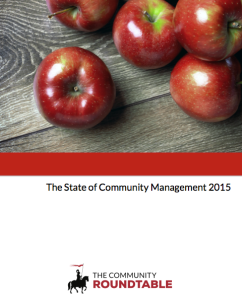By Shannon Abram, Relationship Manager at The Community Roundtable.
If you haven’t already checked out the SOCM 2015 it’s not too late (it’s never too later for research!) You can still download the report for free, and even take the survey to get your scores for the eight competencies in the Community Maturity Model.
If you have dug in to the report we have even more related resources for you this week. You can:
- Watch the one-hour SOCM webinar recording, hosted by our Rachel Happe and Jim Storer, sponsored by Higher Logic.
- Read the SOCM post-webinar Q&A on the Higher Logic blog.
- Browse the June 18th #ESNChat stream, which explored the SOCM with a focus on findings for internal communities.
- Join The Community Roundtable Facebook group, where we will be discussing some of the themes, or you can start your own conversation.
Things We Are Reading This Week
The State of Community Management 2015 – What’s Next? – It’s been a busy three weeks since we releasedThe State of Community Management 2015. We are pleased with the reaction we’ve gotten to the research – already thousands of people have shared and downloaded it. (If you aren’t one of them, you can fix that by downloading it here.)
Don’t Let Your Community Manager Go It Alone – As the resident expert, the association online community manager often serves as an internal consultant to teach other staff about online member engagement. In the future, though, we may all be community managers.
State of Community Management 2015 Monday Fact #2: Community Empowerment – In The State of Community Management reports, we refer frequently to “Best in Class” communities. From a statistical standpoint, we are referring to the communities that scored in the top 20% overall in the State of Community Management survey (which you can still take here to get your score). Looking at the data, we found the best communities had a number of common features that help make them more successful. We highlight some of those general elements in the report, and note them in our Monday facts.
How Twitter Users Can Generate Better Ideas – New research suggests that employees with a diverse Twitter network — one that exposes them to people and ideas they don’t already know — tend to generate better ideas.
Get Executive Buy-In and Participation – Tip #3 for a Successful ESN – In this third post in my series of advice on how to build a successful enterprise social network (ESN), I discuss the following important tip: Get executive buy-in and participation. I’ll illustrate this tip by sharing my company’s story. Our experience in this regard is a tale of two leaders – very different in their connection to our ESN (called Buzz) and the resultant impact on the reputation and spread of ESN use in the enterprise.
New Social Media and Community Jobs
- Senior Social Business Strategy Consultant – East Region – Jive Software – Boston, MA
- Community Manager – Rally Health – San Francisco, CA
- Social Business Executive – Marketing Communities & Advocacy – USAA – San Antonio, TX
- Technical Marketer – Godaddy – Sunnyvale, CA
- Community Manager – Spredfast Inc – New York, NY
- Community Manager – Vistaprint – Lexington, MA
- Community Manager – Cimpress – Lexington, MA
- Community Manager – Denver – Vacasa – Denver, CO
- Associate Community Manager – Skyword – Boston, MA
- Global Community Manager – Hackerx – San Francisco, CA
- Community Manager – Belgian-American Chamber of Commerce – San Francisco, CA
- Community Manager, Relay For Life – American Cancer Society – Charlotte, NC
- Fluxx Community Manager – Fluxx Labs – San Francisco, CA
- Community Manager – Tendr – Brooklyn, NY
- Customer Community Manager – Invoca – Santa Barbara, CA
- Community Manager – UBM Life Sciences – Iselin, NJ
—-
Do you subscribe to our newsletter? Don’t miss out on the newsletter action – sign up now!
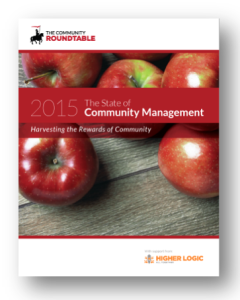
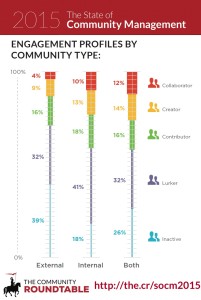
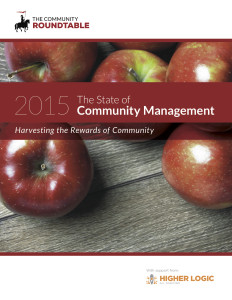

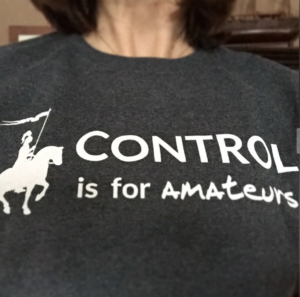 February is (almost) over, but we managed to pack a lot into the shortest month of the year. Our main theme of the month has been the
February is (almost) over, but we managed to pack a lot into the shortest month of the year. Our main theme of the month has been the 

